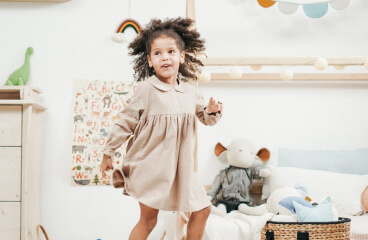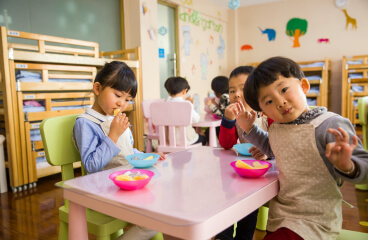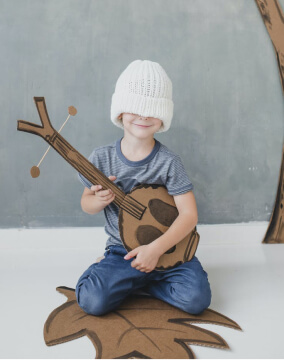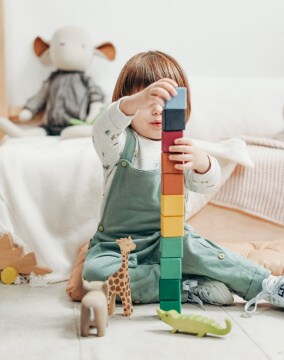What is Pediatric Occupational Therapy?
Pediatric Occupational Therapy is a specialized therapy that helps children who face challenges with movement, coordination, behavior, or sensory integration. Using play-based, evidence-driven techniques, our therapists work on handwriting, dressing, feeding, attention span, and social interaction, empowering children to participate fully in everyday activities.
Who Can Benefit?
- Developmental Delays
- Autism Spectrum Disorder (ASD)
- ADHD (Attention-Deficit Hyperactivity Disorder)
- Down Syndrome
- Sensory Processing Disorders
- Cerebral Palsy
- Difficulties with fine motor skills (grasping, writing, using tools)
- Delays in self-care (feeding, dressing, grooming)
- Learning Disabilities
Services We Provide
Our occupational therapy services focus on building essential life skills — from fine motor control to sensory processing and independence — so that every child can thrive at home, in school, and beyond.

Fine Motor Skill Development
Improving hand strength, coordination, and control

Handwriting & Pre-Writing Skills
Building skills for school readiness

Sensory Integration Therapy
Helping children manage sensory processing challenges

Daily Living Skills Training
Feeding, dressing, grooming, and toileting independence

Play & Social Skill Development
Encouraging interaction and participation

Attention & Focus Training
Strategies to improve concentration and reduce restlessness
Goals of Therapy
- Improve independence in self-care activities
- Strengthen fine motor and hand-eye coordination
- Enhance sensory processing and regulation
- Develop problem-solving and social interaction skills
- Support learning and school performance




Our Approach

Child-Centered Plans
Therapy tailored to each child’s strengths and challenges

Play-Based Learning
Making therapy enjoyable and motivating

Family Involvement
Parents as active partners in therapy goals

Skill-Building for Life
Focusing on school, home, and social participation
Benefits for Your Child
- Stronger fine motor skills (grasping, writing, tool use)
- Better independence in daily routines (feeding, dressing, toileting)
- Improved sensory regulation and reduced sensitivities
- Enhanced focus, attention, and classroom participation
- Boosted confidence and self-esteem

